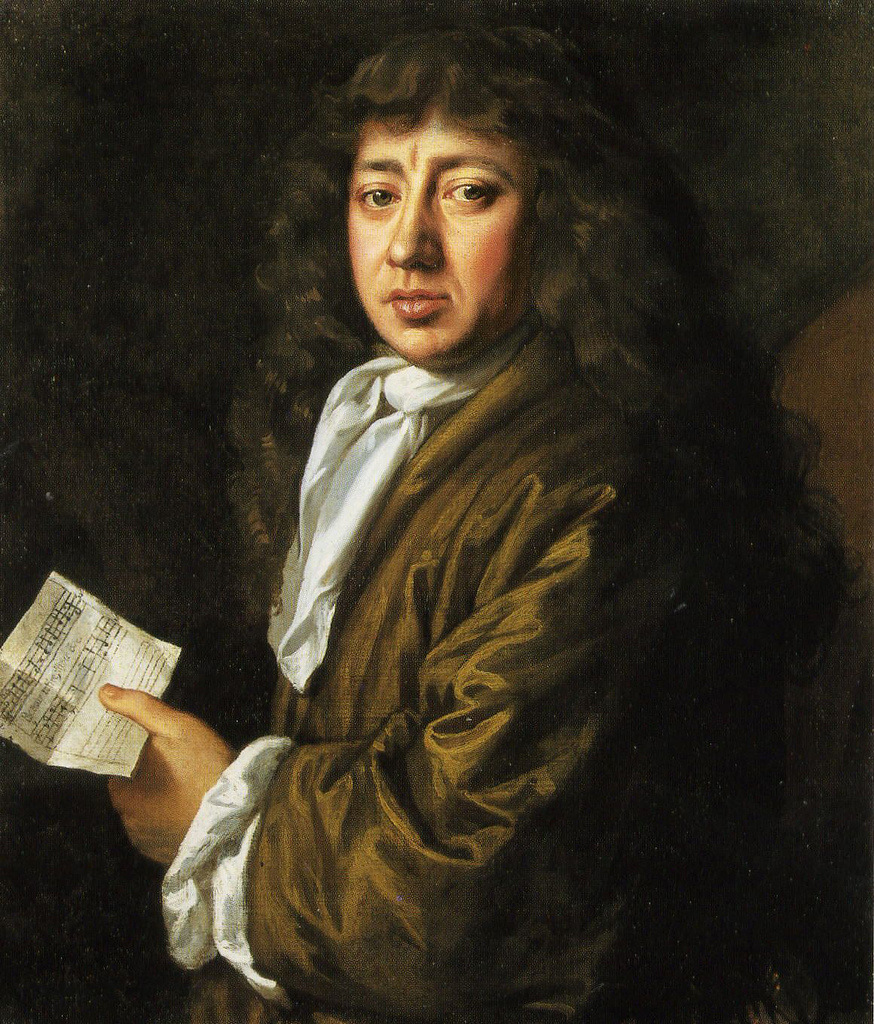Samuel Pepys is one of the greatest writers in British literary history—and all because he kept a diary. Today, Pepys’ Diary is considered to be the greatest personal account of life and events in 17th Century England. It is a work revered both by literary and historical scholars as a first-hand account of such important moments as the Great Fire of London, the Second Dutch War, and the Great Plague of 1665-1666. Spanning a ten-year period, there’s much more to Pepys live that the journal he kept from 1660 to 1670.
Pepys was born 23 February 1633 in Salisbury Court off of Fleet Street to John (a tailor) and Margaret (a butcher’s daughter). However, such seemingly humble beginnings belie a family that was deeply embedded in the nation’s politics. His great uncle was once an MP for Cambridge and his first cousin, Sir Richard Pepys, was an MP for Sudbury, then Baron of the Exchequer, and finally Lord Chief Justice of Ireland. At the age of 9, Samuel was sent to live with his uncle in Huntingdonshire in part because of fears from the Plague. While there, he enrolled in grammar school and moved back to London in 1646 to attend St. Paul’s School. It was during this time that Pepys was able to attend the beheading of King Charles I during the English Civil War.
A year later, he was off to Cambridge University where he received his bachelor’s degree in 1654. It was after this that he went to work for Edward Montagu. Montagu had been a commander in the parliamentary army but fell out with Parliament over King Charles’ execution. In 1655, Pepys married Elisabeth de St. Michel. Two years later, the bladder stones he had suffered with from childhood had become so severe that he had surgery to remove them. Not too long after, Montagu’s efforts to aid the Restoration ended up with him becoming the Earl of Sandwich and First Lord of the Admiralty under King Charles II. Pepys’ work for Montagu afforded him many great political connections, and his influence grew within Charles’ court.
It was starting on 1 January 1660 during the Restoration that Samuel Pepys began to keep his famous diary. He wrote out his entries in shorthand while keeping the names in longhand. In the same year, he became the clerk of the acts to the navy board under Montagu and attended the coronation for Charles II, an event that was recorded in his diary. Over the course of the next ten years, he recorded many of the most important events of 17th Century London. Additionally, Pepys also wrote much about his personal life, including a number of affairs that his wife eventually discovered.
However, about the same time that Samuel Pepys stopped writing in his diary over concerns that writing in low light would make him go blind as it had Milton, Elisabeth grew ill and died in 1669. He never remarried, though was often thought to be in a relationship with his housekeeper. Eventually, Pepys’ extremely good organisation and efficiency led him to ultimately become Secretary of the Admiralty as well as an MP for Castle Rising in 1672 and 1673. However, a scandalous rumour that he sold military secrets to the French forced him to resign from the Admiralty in 1679. Charges of treason were eventually dropped, and Pepys continued to be involved with the Admiralty and the government in a less prominent capacity.
Some years previous, Samuel Pepys was elected to the Royal Society in 1665 and became its president from 1684 to 1686. At the same time, Charles II was succeeded by King James II, and Pepys held an influential position in the new king’s court. However, with William of Orange becoming King William III in 1689, Pepys was accused of Jacobite sympathies in the same year, though those charges were also dropped in 1690. By 1701, his health was beginning to fail, and he moved to Clapham in a house owned by his friend and former employee, William Hewer. Interestingly enough, Clapham was actually considered outside London and in the country at the time. It was there that he died in 1703.
A Little Bit of London In Your Inbox Weekly. Sign-up for our free weekly London newsletter. Sent every Friday with the latest news from London!



